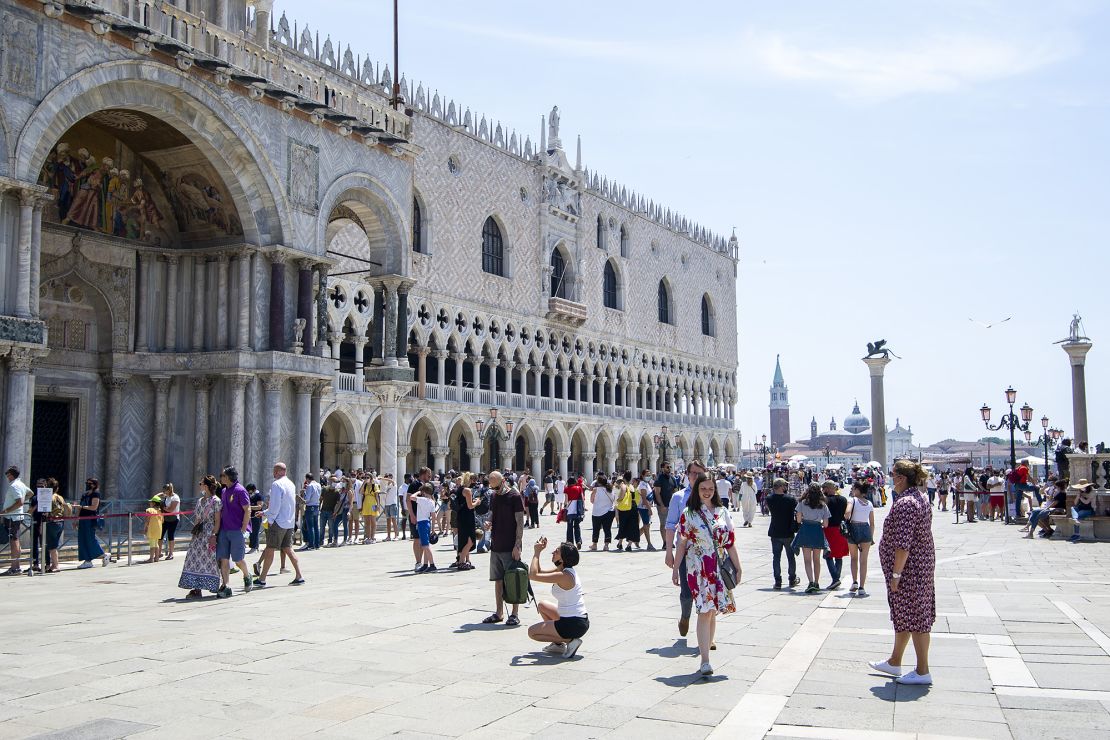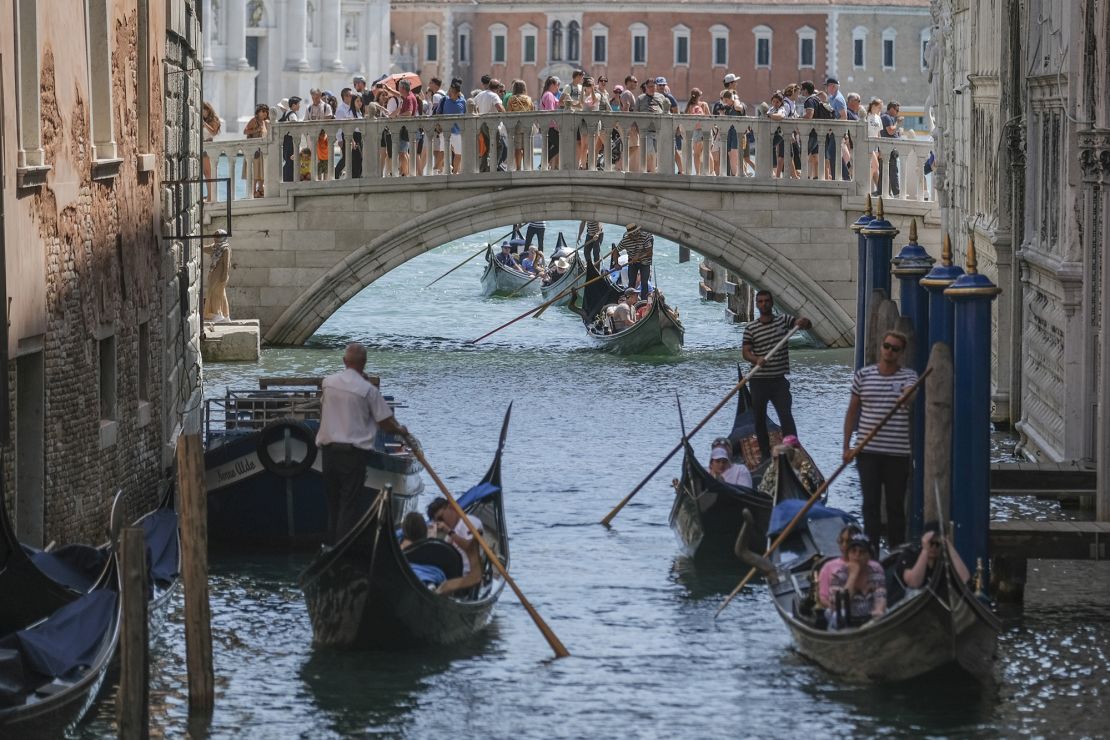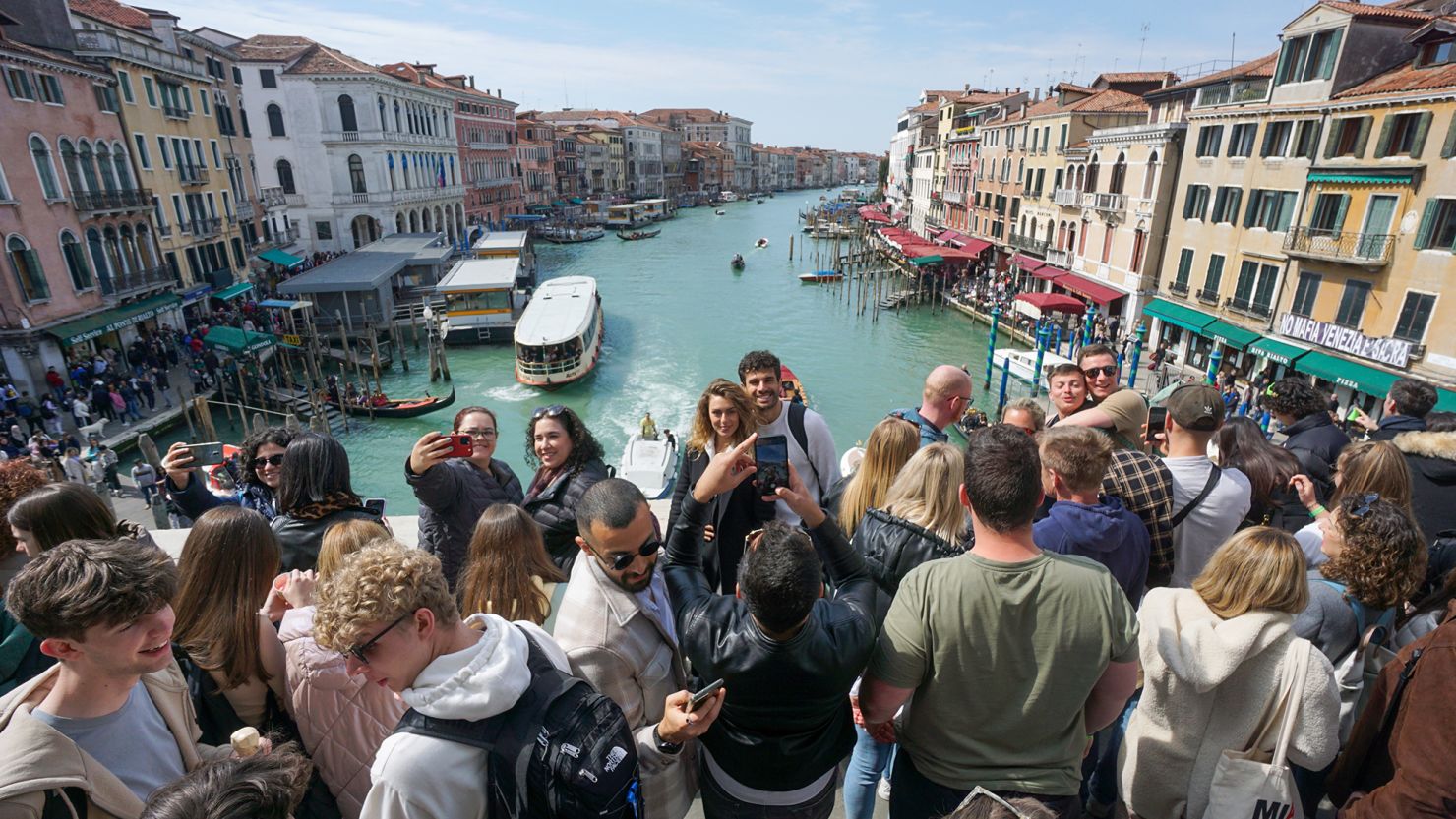Editor’s Note: Sign up to CNN Travel’s Unlocking Italy newsletter for insider intel on Italy’s best loved destinations and lesser-known regions to plan your ultimate trip. Plus, we’ll get you in the mood before you go with movie suggestions, reading lists and recipes from Stanley Tucci.
If you want to take a day trip to Venice next year, you’re going to have to pay.
The city authorities have now approved dates and prices for the much discussed entry fee to the UNESCO-listed destination. There will be 29 days affected between April and July 2024.
It’ll be a flat 5 euro ($5.45) to enter on any day on which a fee is due. The sliding scale of fees that has previously been mooted will not be introduced for 2024. There will be no reductions, either.
The first set of dates on which the fee will be charged cover April to mid July, 2024. The period of April 25 to May 5 kicks off the season, which continues with charges on every Saturday and Sunday from May to July 14. June 1-2 are excluded. Dates have not yet been set for the rest of the year.
The fee will be due for anyone entering the city without an overnight reservation (or an exemption) from 8.30 a.m. to 4 p.m..
The program will be managed via an online platform which will produce QR code “tickets” confirming payment or exemption. There will also be kiosks in the city to pay the charge.
Visitors will be able to go online to register from January 16, 2024.
Those claiming exemptions will also have to register to get a QR code – including overnight guests.
Who has to pay
In short: all tourists aged 14 and over who are not staying in the city overnight will have to pay. But even overnight guests will have to register online to get a QR code showing their exemption.
There are other exemptions for the scheme, though anyone exempt will have to carry a QR code proving this, other than residents of the city and people who were born in Venice (who will instead have to show proof of residency or birth).
People who own property in the city (and pay property tax), students and commuters working in Venice will have to register on the new online platform to obtain a long-term QR code valid for the year.
Those visiting the city on business or short-term study are also exempt, but must register for a daily QR code. The same goes for tourists staying overnight in the wider Municipality of Venice, which includes Mestre on the mainland, and those visiting residents of what is being dubbed the “Old Town” – the historic center of Venice.

Children under 14 won’t pay either, and neither will people with “certified disabilities,” alongside their carers. However, they too must book and receive a QR code for free.
Those staying in Venice proper won’t pay the entrance fee, as they already pay an overnight tax. However they will need QR codes – a spokesperson for the council suggested to CNN that local hotels will likely arrange codes for their guests. If they don’t, the guests will have to register their exemption ahead of arrival.
There will be seven main access points and ticket checks, including the airport, train and bus stations, Fusina port, and the Fondamente Nove and Riva degli Schiavoni waterfronts, where many boats dock. A spokesperson for the council confirmed that these won’t be the only checkpoints, but couldn’t say where the others would be.
Where’s not included
For 2024, the city has exempted the fee for those traveling to most of the lagoon islands, including visitor hubs Murano and Burano, as well as the Lido, home to the city’s beaches. However, most visitors to Murano and Burano will have to pay the fee anyway, since most arrive by taking vaporetto ferries from the city center.
People transiting through Piazzale Roma (the bus terminus), Tronchetto or the Stazione Marittima (where small cruise ships still dock) will be exempt, as long as they don’t cross into the “Old City.”
Fines will range from 50 euros ($54) to 300 euros ($327) per person.
Not a magic money tree

The fee was first mooted in 2019, and finally approved for introduction in 2024 by city councilors on September 23, while the amount payable and applicable dates for 2024 were chosen on November 23.
“The entry fee is intended to curb ‘hit and run’ day tripping [by] inviting day trippers to choose alternative dates,” the council said in a statement shared with CNN.
“The aim is to achieve a new balance between residents, city users and visitors to the Old City who wish to experience positive emotions in the UNESCO World Heritage site.”
Mayor Luigi Brugnaro said in the council meeting: “This isn’t a revolution, but the first step on path to regulate day tripper access – an experiment whose aim is to better the livability of the city, of who lives here and works here.
“Venice is the first city in the world to start out on this journey which could become an example for other fragile cities that must be preserved.”
He warned that there could be “problems” going forward with the system: “The margins of error are wide, but we’re ready to make the changes needed to better the procedure.”
Visitor footfall will be “constantly monitored” by the city’s Smart Control Room, which uses cellphone tech as well as CCTV to watch where people are going, and which helped to work out the dates on which to activate the program.
Proceeds of the fee will go towards communicating with tourists on behaving more responsibly and “living the city” better, Brugnaro told reporters.
Speaking after the council meeting, he admitted they weren’t trying to make money from the scheme.
“We hope to bank not too much money because it’ll mean we’ve reduced footfall on those [busy] days,” he said. “We hope people who want to come on those days decide to find another date. Our goal isn’t to earn money, but to be able to contain those daily influxes that disadvantage the city.
“There are 365 days in the year, after all,” he added.
Correction: A previous version of this story misstated the date in April on which the charges begin.



